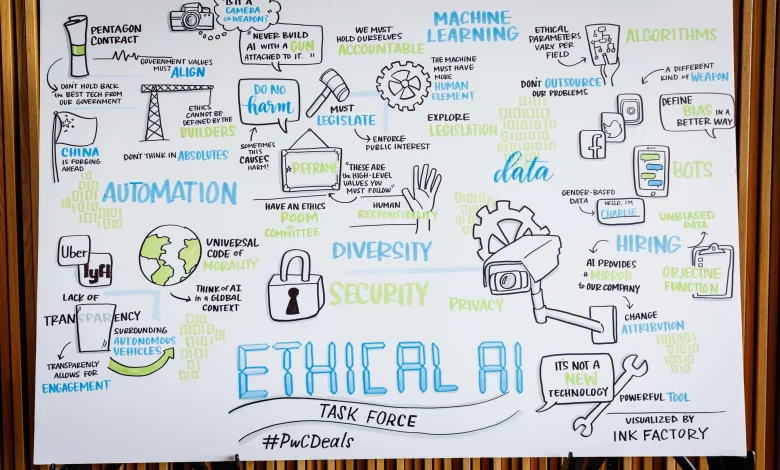The Ethics of AI in Criminal Justice

Introduction
Artificial Intelligence (AI) is rapidly transforming various sectors, and one area where its impact is profound and raises ethical questions is the criminal justice system. As technology becomes more intertwined with legal processes, questions about fairness, transparency, and accountability arise. This article explores the ethics of AI in criminal justice, delving into its applications, benefits, and the concerns it sparks.
Definition of AI in Criminal Justice
In its broadest sense, AI in criminal justice refers to the application of advanced technologies, such as machine learning and predictive analytics, to assist law enforcement, judicial processes, and corrections.
Growing Importance
The increasing reliance on AI in criminal justice is a response to the need for more efficient and data-driven decision-making within the legal system.
Ethical Considerations
The integration of AI in such a sensitive field demands a closer examination of the ethical implications to ensure that advancements do not compromise justice.
Predictive Policing
AI algorithms analyze historical crime data to predict potential crime hotspots, aiding law enforcement in allocating resources strategically.
Sentencing Algorithms
Automated systems assist judges in determining sentences based on various factors, aiming for consistency and fairness.
Facial Recognition
The use of facial recognition technology helps identify individuals in real-time, potentially aiding investigations but raising privacy concerns.
Risk Assessment Tools
AI tools assess the likelihood of an individual reoffending, influencing parole decisions and rehabilitation programs.
Efficiency and Resource Optimization
AI streamlines processes, allowing law enforcement and courts to manage caseloads more effectively.
Reduced Bias
Algorithms, if designed properly, can help reduce human bias in decision-making, promoting fair and impartial judgments.
Improved Decision-Making
The data-driven insights provided by AI can enhance the quality and accuracy of decisions made by criminal justice professionals.
Lack of Transparency
Many AI algorithms operate as “black boxes,” making it challenging to understand their decision-making processes, raising concerns about accountability.
Potential for Discrimination
If the data used to train AI models is biased, the technology can perpetuate and even exacerbate existing societal biases, leading to discriminatory outcomes.
Privacy Issues
The widespread use of surveillance technologies, including AI-driven tools, poses threats to individual privacy rights.
High-Profile Cases
Examining instances where AI applications in criminal justice have led to controversial or questionable outcomes.
The Role of Stakeholders
Government
Analyzing the responsibility of governments in regulating and overseeing the ethical use of AI in criminal justice.
Tech Developers
Discussing the role of technology developers in designing AI systems that prioritize ethical considerations.
Legal Experts
Highlighting the input of legal experts in shaping policies that balance technological innovation with ethical principles.
Striking the Right Balance
Exploring ways to balance technological advancements with ethical considerations to ensure a just and equitable legal system.
Ongoing Evaluations
Advocating for continuous assessments and evaluations of AI systems to address emerging ethical concerns and adapt to evolving standards.
Advancements in AI Technology
Anticipating how future advancements in AI technology might impact the ethical landscape of criminal justice.
Evolving Ethical Standards
Recognizing the need for ethical standards to evolve alongside technological progress to safeguard justice and fairness.
Conclusion
Summarizing the key ethical considerations surrounding the use of AI in criminal justice.Encouraging stakeholders to actively engage in discussions and initiatives aimed at addressing and resolving ethical challenges associated with AI.
FAQs
How is AI currently used in criminal justice?
AI is employed in predictive policing, sentencing algorithms, facial recognition, and risk assessment tools, among other applications.
What ethical concerns surround AI in sentencing?
Ethical concerns include the potential for bias, lack of transparency in decision-making, and the impact on individual rights.
Are there any successful examples of AI in criminal justice?
While some applications show promise, challenges such as bias and privacy issues need careful consideration to ensure success.
Source Links:









